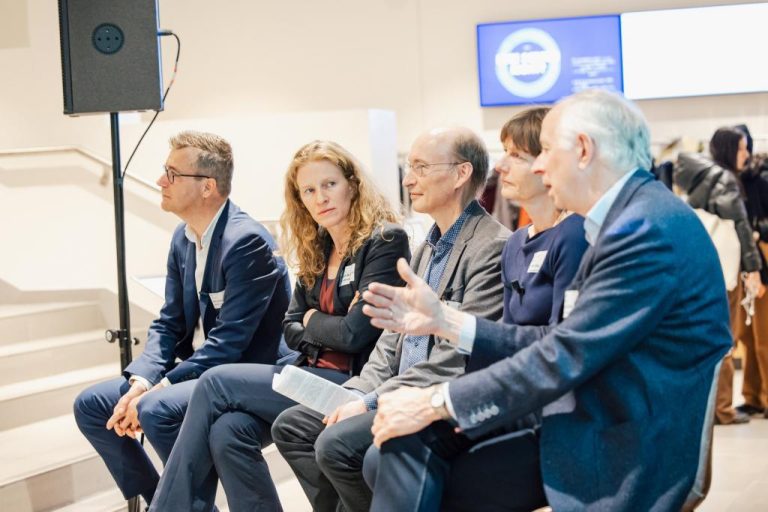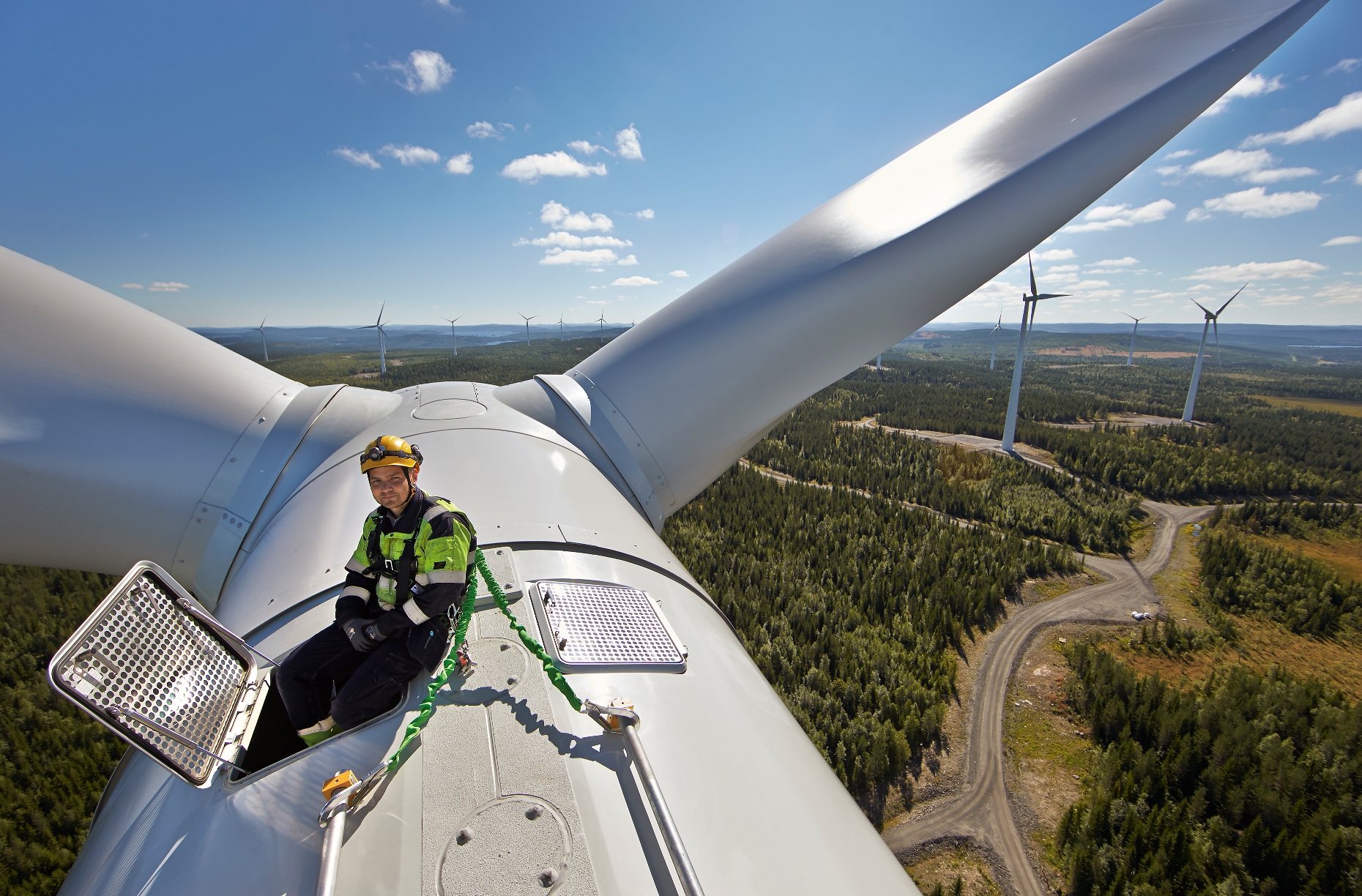Only with the immediate speeding up on climate action across the world can we prevent the planet from heating up disastrously, warns IPCC. “The next few years are critical.”
The Paris Climate Agreement targets limiting global warming to 1.5 degrees. We are not really going full steam ahead. (Photo: Torbjörn Bergkvist / Fosen Vind)
We are losing sight of the objective of the Paris Climate Agreement. Countries must act immediately. This is the dire warning of the last report of the UN Intergovernmental Panel on Climate Change (IPCC) that was published on Monday 4 April.
The world’s economy must be thoroughly overhauled and its current plans revised. If we continue as we are doing now with our industries, construction, transport and food supply, the world will head to about a 3.2 degree warming by 2100, says the IPCC.
The Paris Climate Agreement targets limiting global warming to 1.5 degrees. Most calculations show that in order to not exceed 1.5 degrees, worldwide emissions must have reached their highest level by 2025, must be halved by about 2030, and must be zero by about 2050. This will make emissions negative, which means that large amounts of CO2 will be removed from the atmosphere.
There is a little more leeway if we are to stay well below two degrees, but for this too the emissions must drop significantly in the next few years and be zero a few decades later.
‘The road to the target has become a narrow path’
Two hundred experts from around the world, including five Dutch climate researchers and energy experts, worked on the Working Group III Sixth Assessment Report. (See text box below for more information)
One of the authors is Detlef van Vuuren of the Netherlands Environmental Assessment Agency and Utrecht University. “The new IPCC report shows that the coming years are critical if we are to meet the Paris Agreement,” he said at a press meeting shortly after the publication of the report.
“The road to the target has become a narrow path. What is crucial is to have nett zero emissions mid-century. This means that all investments must include this goal.”
More solar and wind energy
Kornelis Blok, Professor of Energy Systems at the Faculty of Technology, Policy and Management, also worked on the report. He believes that there are five measures which can be taken to significantly reduce emissions in the short term: more solar; more wind energy; energy savings; stopping deforestation; and rapidly reducing the emission of methane.
There are glimmers of hope, though it does depend on how you look at things. Compared to previous decades, while the largest absolute increase in greenhouse gas emissions did occur in the last decade, the percentage increase flattened.
High income countries accounted for 24% of the emissions and the lowest income countries for 3%
Despite a reduction in energy intensity (the emissions per earned euro) and lower carbon emissions in energy production (the emission per produced energy unit), the growth in industry, transport, energy production, agriculture and the built environment caused rising emissions.
They also involved large regional differences. In 2019, high income countries accounted for 24% of the emissions and the lowest income countries for 3%. That said, a growing number of countries – mostly high income countries – have reduced their emissions over the last 10 years.
Stricter climate laws
The costs of different low emission technologies, such as those for sustainable energy, have declined sharply since 2010 because of factors such as innovation policy and learning effects. Stricter climate laws have also led to greater investments in low-carbon technologies and infrastructure, and there is much interest among private individuals for forest restoration. However, more public and private investments are still going to fossil fuels.
The researchers calculated that measures that would cost less than USD 100 per reduced ton of CO2 could halve worldwide emissions in 2030 compared to 2019.
Behaviour change, such as energy saving, sustainable energy for transport, and reducing meat and dairy consumption in wealthy countries, could play a significant role in reducing emissions both in the short and longer term (40% to 70% by 2050).
The Dutch contribution


The five Dutch climate researchers of Working Group III, with TU Delft professor Kornelis Blok on the far right. (Photo: Annelies van ‘t Hul)
The Working Group III report was written by more than 200 experts from around the world. Five Dutch climate researchers contributed both to the report and to the Summary for Policy Makers. They were:
- Heleen de Coninck (Technical University Eindhoven / Radboud University): Coordinating Lead Author Innovation, Technology and Technology Transfer;
- Gert-Jan Nabuurs (Wageningen University): Coordinating Lead Author Agriculture, Forestry and Land Use;
- Detlef van Vuuren (The Netherlands Environmental Assessment Agency and Utrecht University): Lead Author Long Term Scenarios;
- Linda Steg (University of Groningen): Lead Author Energy Systems and Coordinator of Feasibility Studies;
- Kornelis Blok (Technical University Delft): Lead Author Multisectoral Perspectives.
The Intergovernmental Panel on Climate Change (IPCC) is the United Nations’ body that evaluates the risks of climate change. The IPCC does not do any research itself, but ensures that policymakers are fed the most current and relevant scientific understanding about climate change. The IPCC issues a new summary of scientific findings around climate change every seven years.
The report that was published on 4 April is the third part of the report and looks at reducing further climate change and what measures are needed to do this (Mitigation of Climate Change). Part 1 – The Physical Science Basis – was issued in August 2021 and was about the natural sciences. Part 2 – Impacts, Adaptation and Vulnerability – was about adapting to the changes and was published a month ago.
Do you have a question or comment about this article?
tomas.vandijk@tudelft.nl


Comments are closed.